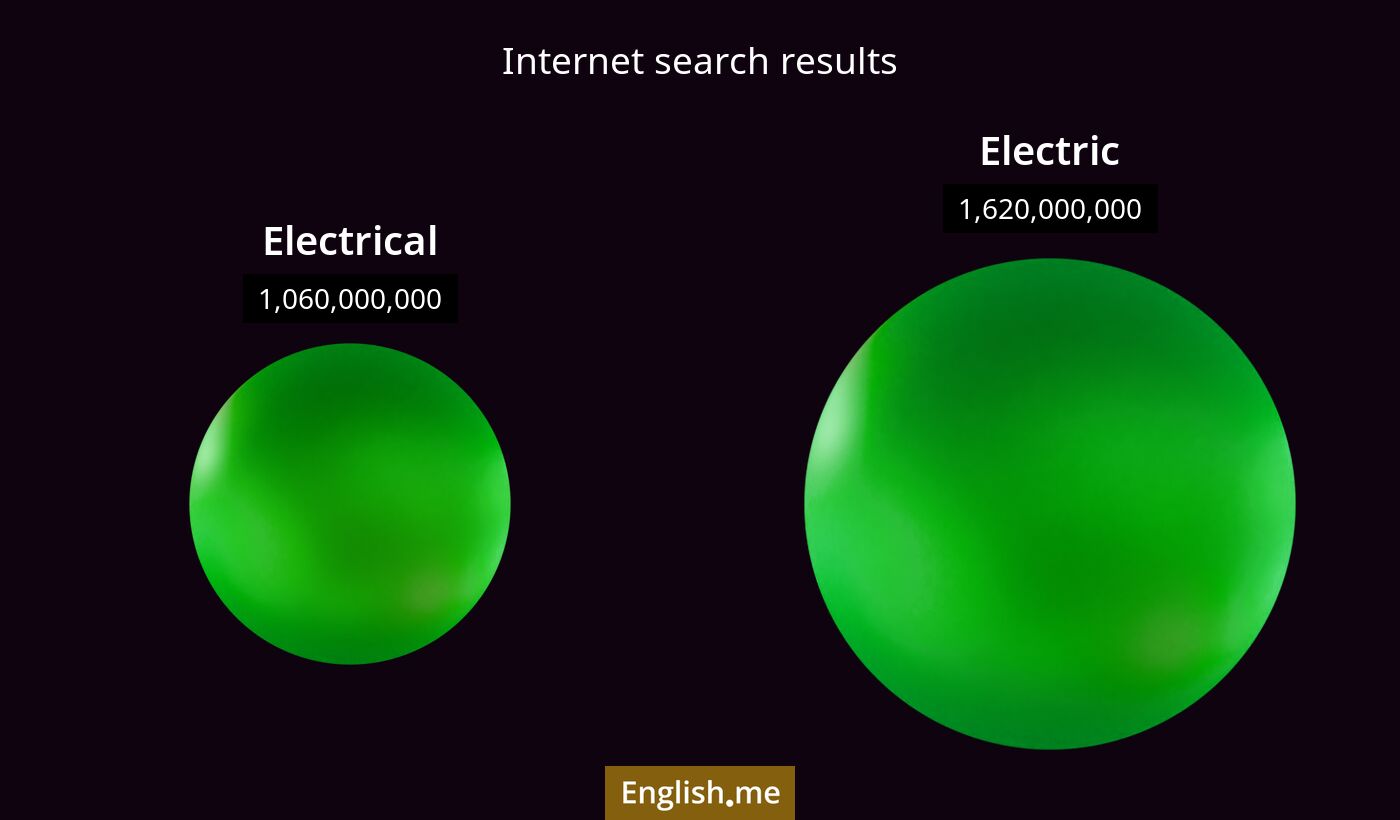"Electric" vs. "electrical": unplugging the differences and connections
Reviewed and edited by  Anwar Kareem 13/10/2024, 16:52
Anwar Kareem 13/10/2024, 16:52
English.me team member

 What is similar?
What is similar?
Both "electric" and "electrical" are related to electricity. They describe things that pertain to or involve electricity.
 What is different?
What is different?
"Electric" generally describes something that directly uses or produces electricity, like electric cars or electric lights, whereas "electrical" is often used in a broader context to refer to things related to electricity, like electrical engineering or electrical currents.
 Which one is more common?
Which one is more common?

 Examples of usage
Examples of usage
Electrical- She is studying electrical engineering at university.
- The building's electrical system was upgraded for safety.
- There was an electrical fault that caused the blackout.
- He bought a new electric car last week.
- The electric bill was higher this month.
- They used an electric drill to make the holes.

 English
English español
español française
française italiano
italiano deutsche
deutsche 日本語
日本語 polski
polski česky
česky svenska
svenska Türkçe
Türkçe Nederlands
Nederlands